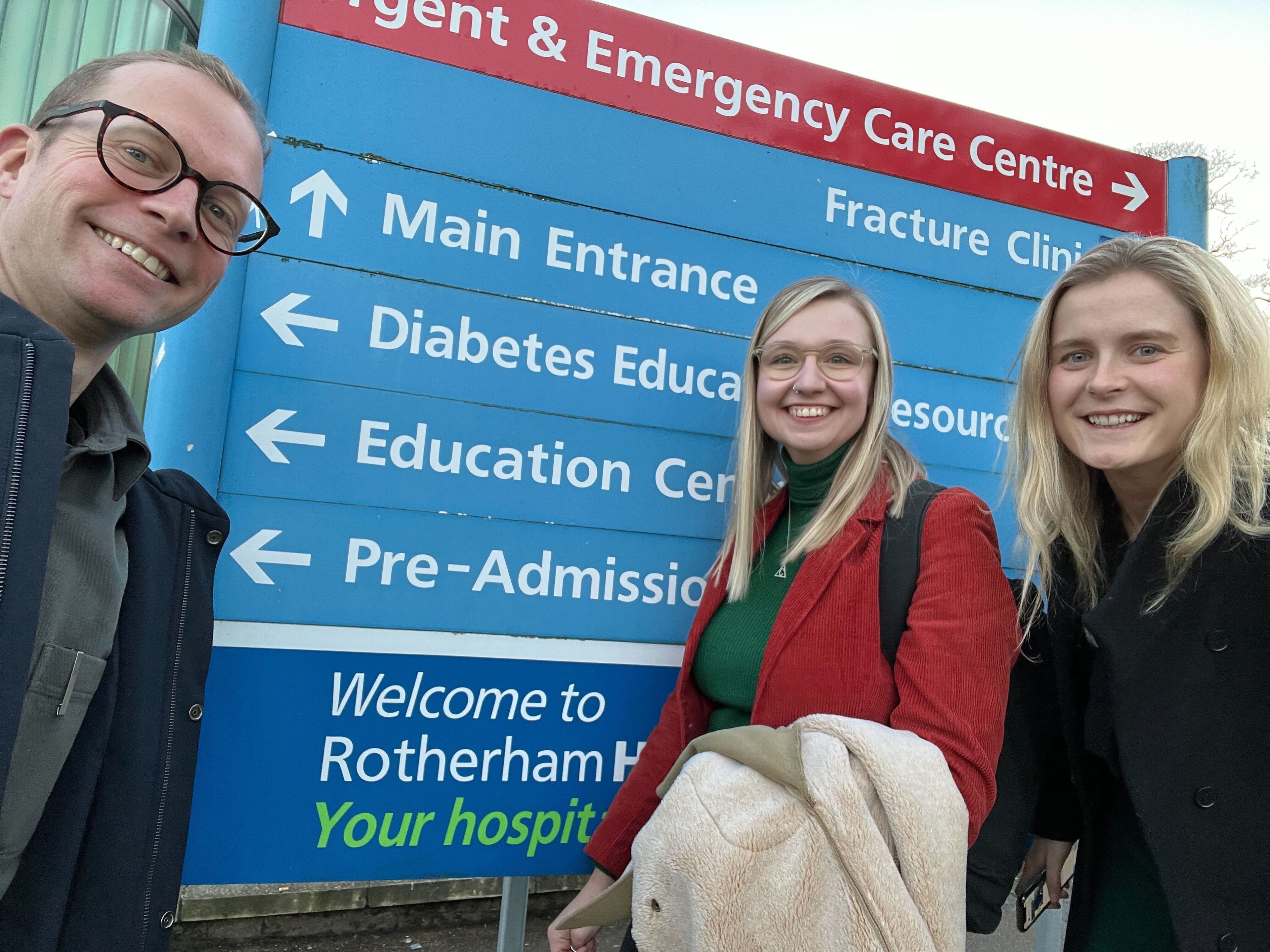
Health and care
We work with health and social care organisations around the world to achieve the full promise of digital, and radically improve outcomes.
Hello there! We’re the sickle cell discovery team at Public Digital. We’re working with the NHS Race and Health Observatory to run a discovery project that builds an in-depth understanding of the challenges people with sickle cell experience in accessing adequate health care when they are having an acute painful sickle cell episode.
We understand that many of these issues are well understood within the sickle cell community; our goal is to document them from the perspective of people with lived experience, and to use this information and insight to inform a set of recommendations for ways in which digital interventions could begin to address these problems.
A discovery is a phase of work. It’s a period of time characterised by particular types of activities which are focused on conducting exploratory research. Digital teams run discoveries before they do anything else, to enable them to build a deep understanding of the problem they are trying to solve, from the perspective of the people who they are trying to solve it for.
Ultimately, you run a discovery so that you don’t immediately start jumping in with lots of bright ideas and designing expensive and time consuming solutions before you’ve understood what the actual problems are.
In practice, this means we’ll spend lots of time talking to people about their experience and understanding what their needs are. We will also explore what digital platforms are out there already that are helping people with sickle cell when they are experiencing an acute painful episode to access the healthcare services they need. By bringing this information together, we are looking to help the NHS Race and Health Observatory to identify digital interventions that hold potential for impact and scalability, to be taken forward for testing and eventually, we hope, to be rolled out nationally.
Unfortunately, for lots of reasons, many of which are related to structural racism and health inequalities in the NHS and the UK, people with sickle cell frequently receive substandard care when they are unwell and in pain.
We are committed to building on research that has already been done, which is why we’ve started by conducting a literature review of existing evidence. We hope to demonstrate a way of approaching and developing digital interventions, products and services in the NHS: one that is user-centred, evidence based and responsive to change. We hope our work creates momentum for wider transformation, while delivering real benefits for people with sickle cell in the UK.
The outcome of this work will be a set of recommendations for digital interventions to take forward for testing. The NHS Race and Health Observatory is committed to testing promising interventions in order to deliver real benefits to sickle cell patients.
Our weeknotes are a short and simple summary of what we’ve been working on over the last week. They are intended to:
Help the team reflect on the week
Enable openness and create transparency between the team and the people that are interested in our work - that’s you!
Help us connect with and learn from other, similar initiatives
Give you a window into the how and the why of what we’re doing
Give you a mechanism - and a reason - to get in touch with us
If you’d like to understand more about weeknotes, we’ve written about why we write them before.
For the last 2 weeks, we've shared our weeknotes via email with some of this project’s stakeholders, in line with NHS England’s decision to pause external communications as a mark of respect for the late Queen Elizabeth II.
From this point forward, we will be publishing our weeknotes here every Friday for the duration of this project, which runs until December.
Please don’t hesitate to get in touch with us by emailing connie@public.digital if there’s anything you’d like to share with us, or ask us about.